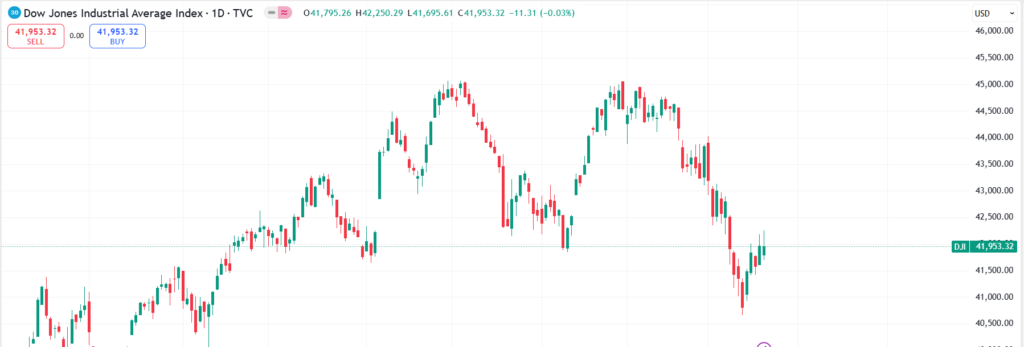
Federal Reserves Stance and Market Reaction
In its recent meeting the Federal Reserve opted to maintain interest rates at their current levels reflecting a cautious approach amidst ongoing economic uncertainties. Fed Chair Jerome Powell emphasized that while consumer spending remains solid the broader economic outlook is tempered by trade tensions and policy ambiguities. Despite this markets exhibited resilience with major indices experiencing modest fluctuations.
Impacting Investor Sentiment
The U.S. administrations trade policies particularly the imposition of tariffs on imports from Canada and Mexico have introduced volatility into the markets. These measures have raised concerns about potential inflationary pressures and disruptions in supply chains leading investors to adopt a more cautious stance. The S&P 500 and Nasdaq indices have experienced declines in response to these developments reflecting the markets sensitivity to geopolitical events.
Corporate Earnings
Recent earnings reports present a mixed picture. Companies like Micron have reported earnings that surpassed expectations providing a glimmer of optimism. Firms such as Nike and FedEx have faced challenges with their stock prices reflecting investor apprehension. This divergence underscores the uneven impact of current economic conditions across different sectors.
Banking Sector Under Pressure
Major U.S. banks are bracing for a challenging period as analysts lower earnings expectations. Institutions like Goldman Sachs and Morgan Stanley are experiencing reduced client activity due to economic uncertainties and fluctuating market conditions. The upcoming first quarter earnings reports will be pivotal in assessing the full impact of these challenges on the banking sector.
Investors are advised to maintain vigilance as the market continues to respond to policy decisions trade developments and corporate earnings reports. Diversification and a focus on long term investment strategies remain prudent approaches in this environment.
